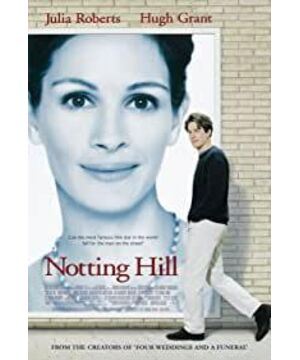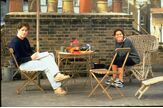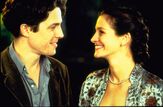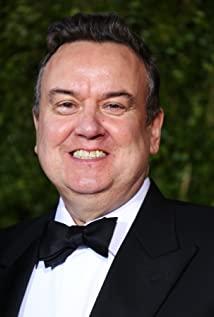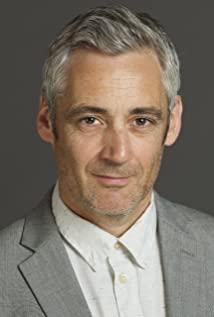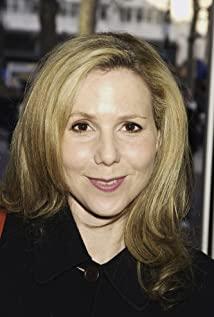Originally, it seems that everyone will meet so few impossible people in their life: Anna Scott in Notting Hill, Kerry in four weddings and one funeral; people stop, pay tribute, talk briefly, but can't get through that There was a chasm that couldn't be bridged, so everyone turned and walked away because they knew there was no way out.
But in Richard Curtis's play, people have the option of crossing that chasm after the homage conversation: William Thacker finally has a chance in a dash to say he's a jerk before the impossible; and Charles knew that the thunderous true love he finally expected would not really exist. He knew that maybe if he couldn't find each other's other half like Garrison and Matthew, he probably shouldn't really get married. He understands that what he expects will only lead him to a dead end, so he compromises like reality like anyone, but he ends up escaping his own wedding.
The cruelty here is that neither William nor Charles could have resisted the harsh reality that they would never be able to jump over that ditch in their entire lives, and every audience knows it. And Richard Curtis always creates a Hollywood reversal at the end, giving the audience a happy ending. The audience is happy to accept such an ending and make a complete escape.
— but that would be self-deception: one needs too good luck to make a miracle, just as one needs too good luck to get that lightning-struck encounter.
William and Charles (the names of the two princes when I wrote this) are always friends with good luck, and they shouldn't have blamed God for not giving them such good luck. In the world of ordinary people around us, they may have never met that person in their life, or they may have chosen a compromise, and only in Richard Curtis's script can they escape.
And this escape will seem so dreamy and unrealistic when you think of the story many years later, so the light comedy story that should be happy will become more and more cruel.
View more about Notting Hill reviews


